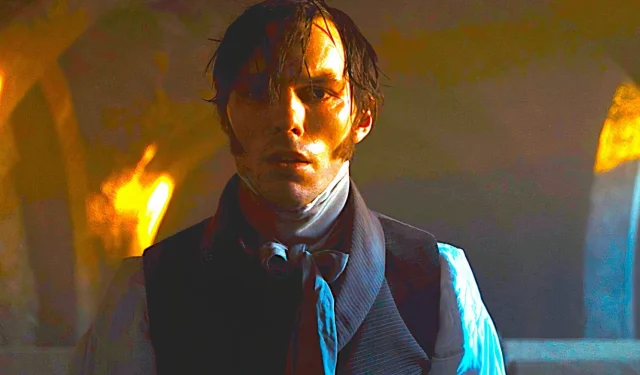
Nicholas Hoult has recently shared an unusual acting tip he had to forego while working on Nosferatu, due to the specific preferences of director Robert Eggers. Having dipped his toes into the horror genre with the comedic Renfield in 2023, Hoult is now taking a much darker plunge as he portrays Thomas Hutter—a character analogous to Jonathan Harker—in Eggers’ highly anticipated remake of the classic vampire tale. This film is set to hit theaters on December 25.
Known for his SAG Awards-nominated performances, Hoult demonstrated remarkable versatility in Nosferatu. However, he encountered a unique challenge: adapting his acting style to fit Eggers’ distinct vision. During a recent interview, Hoult explained that he had developed a habit of using expressive eyebrow movements while portraying his character in the TV series The Great. This tendency had to be curtailed significantly for his role in Nosferatu since Eggers disapproves of that style of expression.
I’d previously been shooting a show called The Great for a while, and with that character, I got away with a lot of comedic eyebrow twitches and movements. So that was something that I quickly had to nix for this role because Rob does not like it. He sent me quite a few [Ingmar] Bergman movies and a lot of other movies to research and watch as prep for Nosferatu, and there’s very little eyebrow acting in them. So Rob does not enjoy that, and that was something that felt very alien at first. I was like, “OK, I have to try and keep my eyebrows as still as possible throughout this whole movie.
Impact on Hoult’s Performance in Nosferatu
Understanding Eggers’ Psychological Intensity
In The Great, Hoult effectively utilized his eyebrows as a comedic tool, enhancing his dual roles as Peter III of Russia and Yemelyan Pugachev. However, Nosferatu diverges sharply from that satirical approach. Eggers, known for his focus on psychological depth and intensity, requires an entirely different performance style that eschews any comedic undertones. Initially, this adjustment felt quite unnatural for Hoult, highlighting the demands of Eggers’ artistic vision.
Eggers is renowned for his previous works, which are characterized by intense psychological themes. Films like The Lighthouse deliver a menacing atmosphere, interspersed with dark moments, while The Witch and The Northman further emphasize this trend toward heaviness and drama. Given this context, it is sensible that Eggers would impose restrictions on expressions that could inadvertently inject humor into the otherwise serious narrative of Nosferatu.
The Influences Behind Eggers’ Nosferatu
The Significance of Bergman’s Influence
Eggers’ decision to have Hoult study the works of Ingmar Bergman reflects a deeper artistic strategy. Although Bergman produced a few lighter films, his legacy is defined by intense drama and characters grappling with profound psychological struggles. This direction underscores Eggers’ aim to create a similarly thought-provoking and visually captivating reinterpretation of Nosferatu.
As of now, Nosferatu boasts a commendable 94% rating on Rotten Tomatoes, reflecting strong anticipation for its release. Eggers’ skillful command of psychological nuance positions him as the ideal director for this reimagining—bringing a complex, visually striking approach to the horror genre that will resonate with audiences.
For more details, check out the source: Source & Images




Leave a Reply